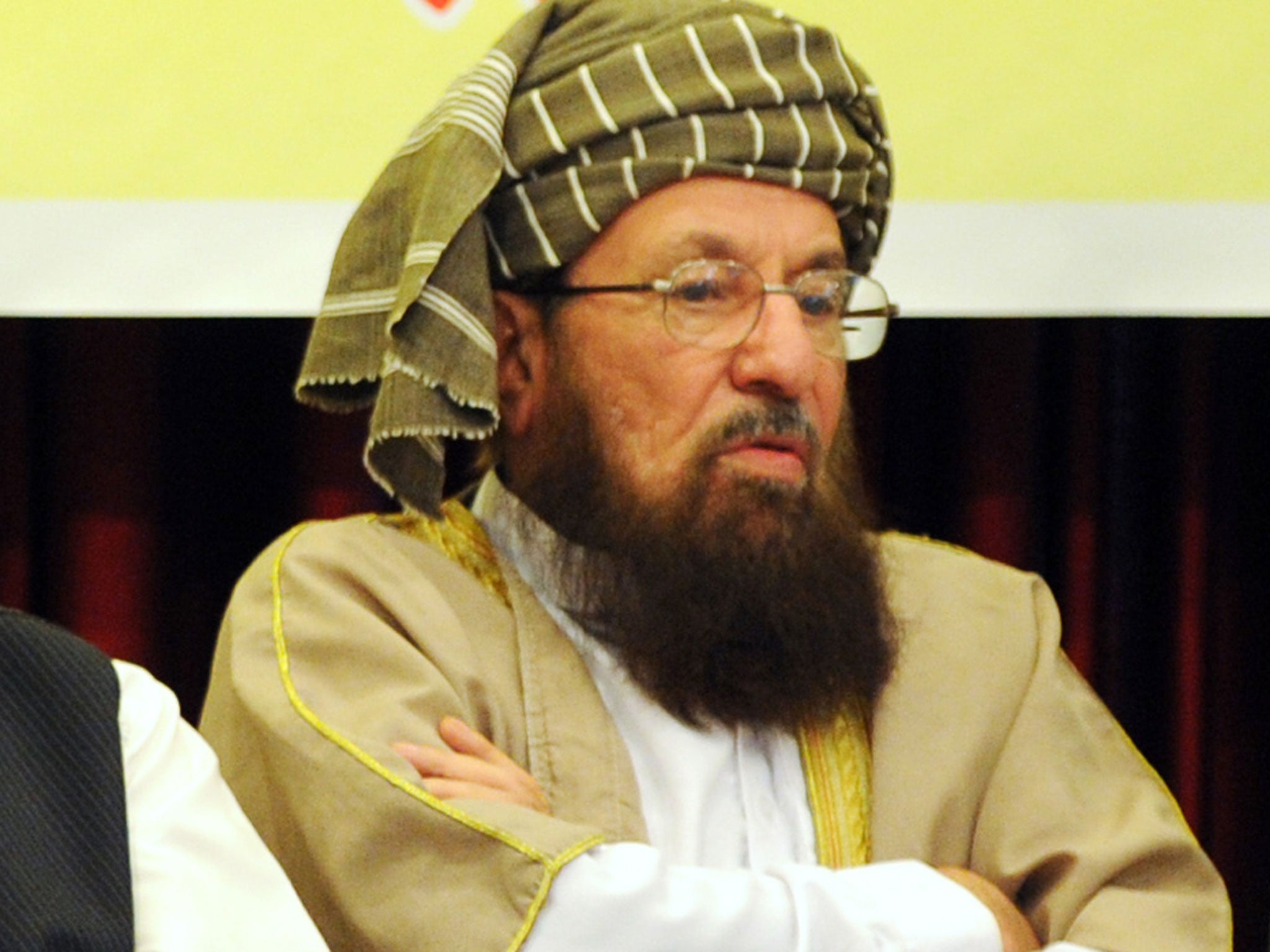Pakistan's incoming prime minister Nawaz Sharif reaches out to 'Godfather of the Taliban' Sami ul Haq for help in negotiations with Islamists
During the election campaign, Mr Sharif said he would 'withdraw' the country from America’s war on terror

Pakistan's prime minister-elect is pushing ahead with plans to try and negotiate a peace settlement with the country’s militants and has asked a man known as the "Godfather of the Taliban" to act as an intermediary.
A week before he is due to be sworn in, Nawaz Sharif and his senior officials have approached a hardline Islamist leader and politician, Sami ul Haq, and asked him to act as his envoy and make contact with the Taliban insurgents.
Mr Sharif is likely to receive backing for the proposed negotiations from Pakistan’s Islamist political parties and his rival Imran Khan. The former cricket star’s party is poised to form a coalition government in the northwest province of Khyber Pakhtunkhwa (KPK) and has also asked Mr Haq to approach the militants.
Mr Sharif hopes to restore security in Pakistan as he tries to end crippling power shortages and boost the long flagging economy. Khurram Dastgir-Khan, a senior member of Mr Sharif’s Pakistan Muslim League-Nawaz party (PML-N) said the next government will pursue a broad range of counterinsurgency efforts.
“This is an issue we will be dealing with,” said Mr Dastgir-Khan. “Not just through the use of force, but also negotiations, how the tribal areas will be governed, and how Pakistan’s civil-military relationship can be improved to bring all sides on the same page.”
During the recent election campaign, Mr Sharif announced he would negotiate with the Taliban and “withdraw” the country from America’s so-called war on terror. Mr Khan was even more outspoken about his readiness to negotiate and his nominee for the position of chief minister of KPK, Pervez Khattak, recently went as far as to say his party had no “enmity” with the Taliban.
“Some kind of talks with the Taliban will definitely take place because the political parties who talked about talks have been elected,” said Hasan Askari Rizvi, a political and strategic analyst.
He added: “The problem is that the PML-N has no idea what the Taliban’s condition for talks will be. In the past, the Taliban has refused to recognise Pakistan’s constitution and laws.”
Critics of negotiations have warned that truces with the Pakistani Taliban have been tried several times before, only for them to fail and embolden the militants. In 2009, when the Pakistani Taliban rampaged across the northwest Swat Valley, the then government capitulated to a peace deal that was broken within weeks, during which time the militants acquired even more territory.
It is also unclear what position Pakistan's powerful army will take. In recent weeks, army chief Gen Ashfaq Parvez Kayani has stressed that the fight against militancy is Pakistan’s own. The army has said that it would be open to negotiations with the Taliban if they first put down their arms.
“We do not yet know what the army makes of these overtures to Mr Haq but we do know that having had its fingers burnt in the past over peace deals with the Taliban, the military will want Sharif to come up with a really fool-proof plan to ensure that Kayani and his men don't land up with egg on their faces yet again,” said Farzana Shaikh of Chatham House in London.
She added: “I imagine, therefore, that any negotiations with the Taliban that start with demands for the imposition of sharia law will be given short shrift.”
Mr Haq heads a religious seminary, Darul Uloom Haqqania, where many Taliban commanders studied. It granted an honorary doctorate to Mullah Mohammed Omar, leader of the Afghan Taliban. Because of this Mr Haq is often called the "Godfather of the Taliban", though some have questioned whether he still retains extensive leverage over the militants.
In comments to the Pakistani media, Mr Haq said he is happy to try and negotiate. Yet he said his involvement was dependant on the willingness of the military for the talks to go ahead.
“Before accepting the role of go-between, I’d need an assurance that the future prime minister, Nawaz Sharif, and Pakistan army are on the same page on the issue,” he told the Express Tribune newspaper.
He added: “It is essential that the civilian and military leaderships take a unanimous decision on the issue of peace talks with the Taliban. Meaningful talks cannot be pursued if the two stakeholders have divergent or conflicting approaches to the issue.”
On Tuesday, the Pakistani Taliban took responsibility for an attack earlier this week that killed five policemen traveling in a van in the northwest province of KPK. Ehsanullah Ehsan, the Taliban’s spokesman, said his group would continue to attack those that oppose his organisation.
Join our commenting forum
Join thought-provoking conversations, follow other Independent readers and see their replies
Comments